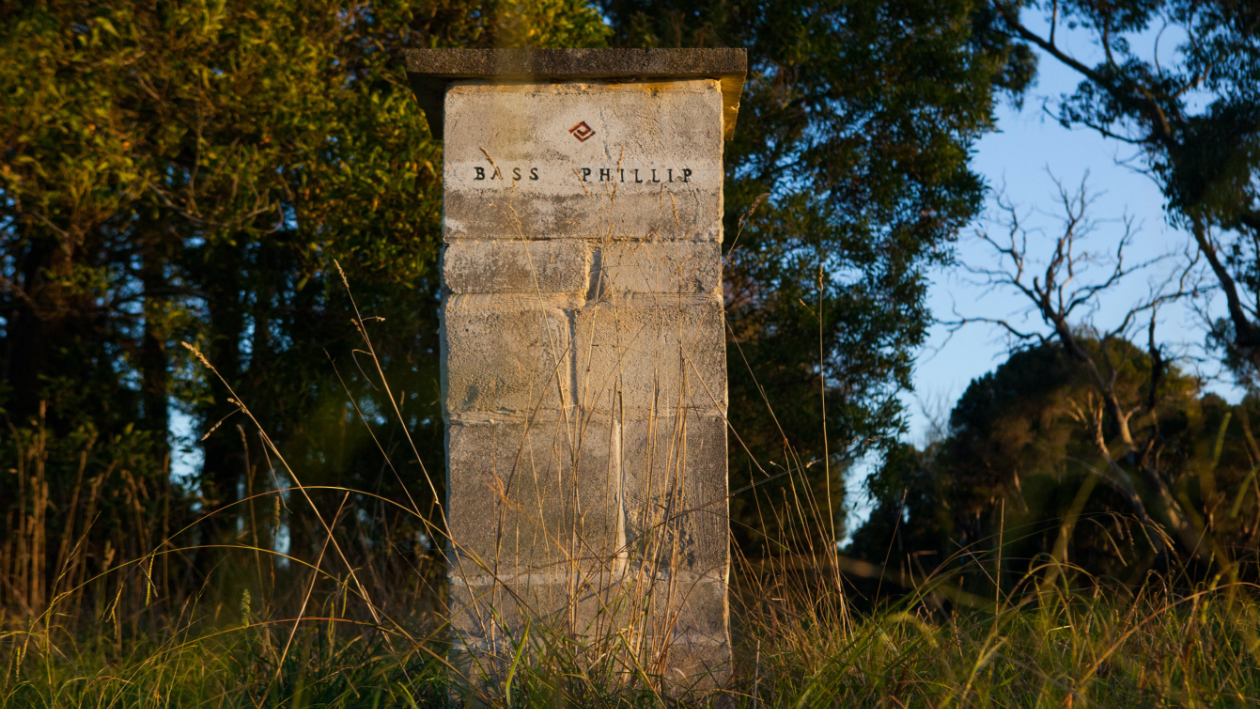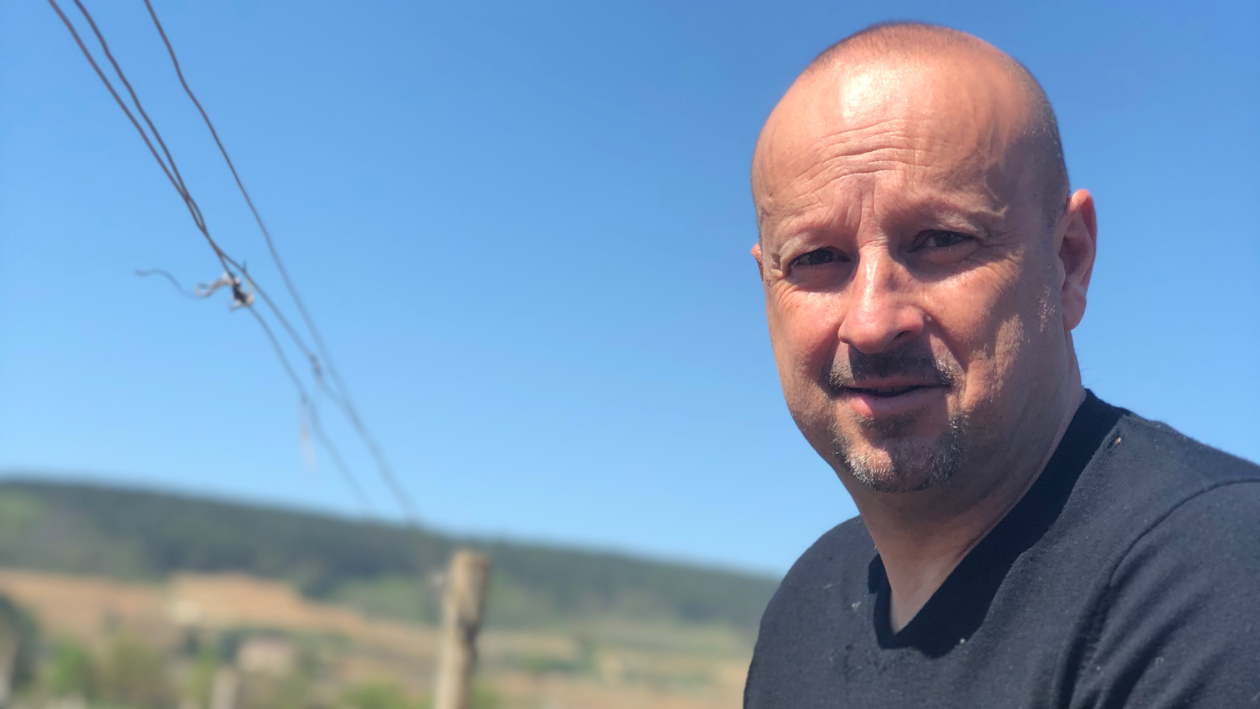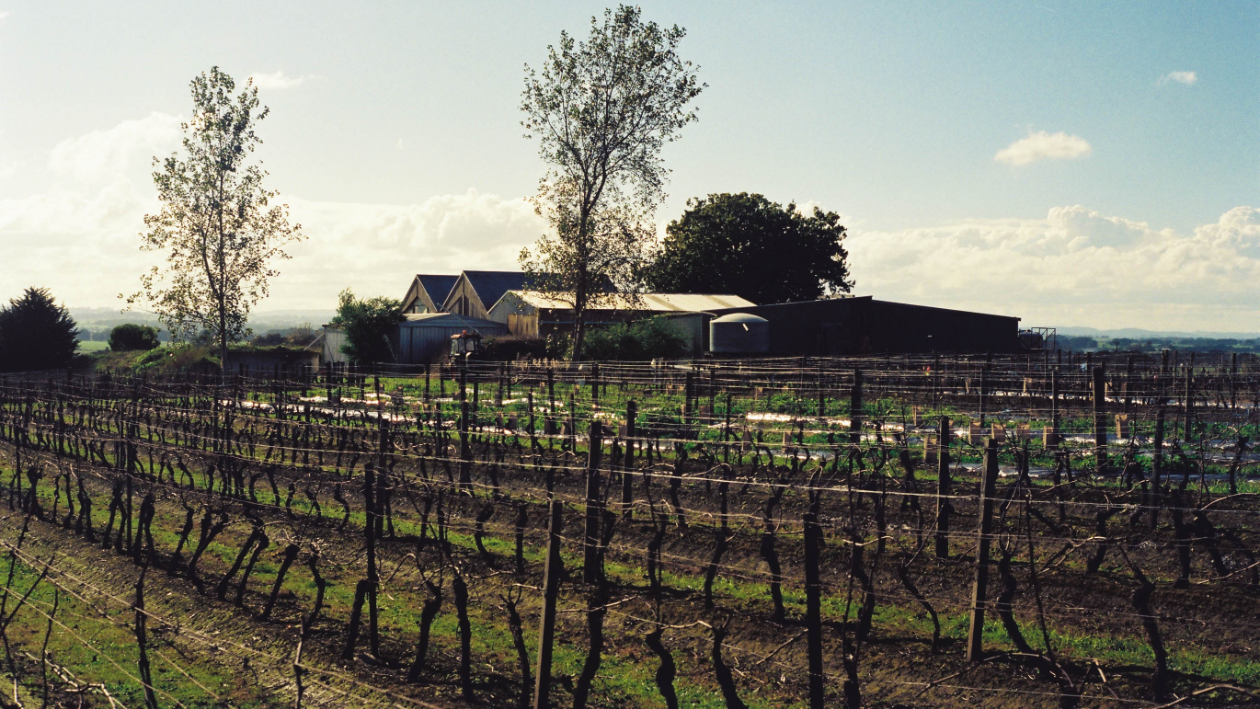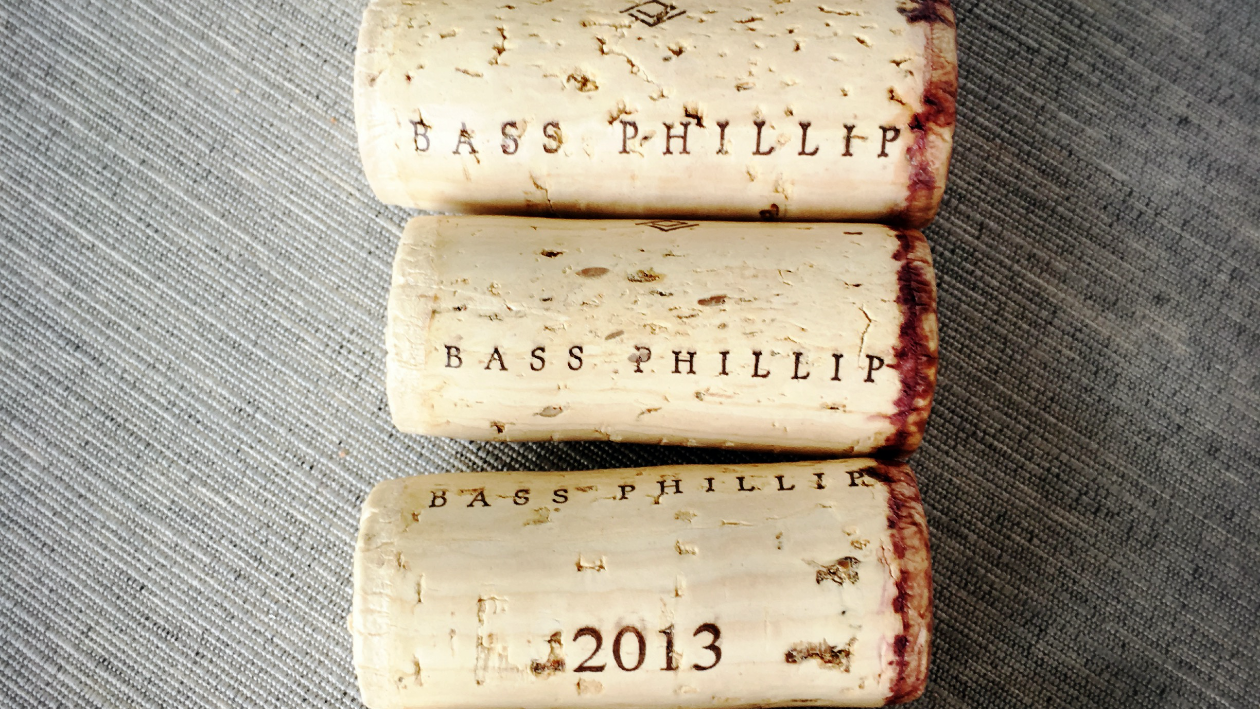Background of Bass Phillip
Bass Phillip is named after George Bass and Arthur Phillip – men of great pioneering spirit, foresight and leadership during the nineteenth century. The Bass Phillip vineyards were first established, many years later, in the southeastern corner of Australia in 1979, specialising in high-quality pinot noir and chardonnay wines.
Winemaking at Bass Phillip is uncompromising and driven by the respect for nature. The vineyards have been organic since 1993 and biodynamic since 2002. All wine production processes at Bass Phillip are guided by the cosmic rhythms that impart energy and vibrancy into the wines.
Made in a simple and traditional manner, with low-cropped vineyards, no irrigation and minimal intervention in the winery, the wines of Bass Phillip display flavours which are characteristic of the region and their individual vineyards. Deep mineral-rich soils, natural high humidity, and cooler temperatures in South Gippsland is also part of the magic that delivers the length, complexity, flavors, balanced acidity, and natural minerality to Bass Phillip wines. Combining undivided attention to detail in the vineyards and winery, and an insatiable passion for quality wine experiences, Bass Phillip produces extraordinary wines one vintage after another.
The most recent vintages of Bass Phillip pinot noir are the best we have produced. We put this down to older vines, more experience in winemaking, and continued sustainable practices in both the vineyards and winery.

What makes Bass Phillip unique?
Wines at Bass Phillip are handcrafted with strict scientific analysis and monitored with rigorous quality control. However the story doesn’t end there, the real essence of Bass Phillip’s wine production is to allow the forces of nature to maintain control. Minimal human intervention is practiced wherever possible – no irrigation/pesticides/fertilizers, minimal pumping/ filtration, natural yeast, no fining agents.
As a perfectionist, we crop our fruit at incredibly low levels to achieve the objectives in flavour development. We believe strongly in a gentle hand. Racking is kept to a minimum and no pumps are used in the winery. “The difference between good and great Pinot Noir is texture. We try to minimise the bruising effects that pumping can have on this texture.” Ultimately our priority is to produce a wine that is completely natural and which expresses vineyard site. This sounds simple, but such a high standard does require a relentless pursuit of perfection – and a degree of madness.
The Biodynamic practice at Bass Phillip is planned according to the lunar cycles. Adopting these practices means that each vintage of Bass Phillip wines exhibits the characteristics of “mother nature’s” temperament, expressing the harmony of earth, moon and sun. Displaying the natural influences of nature’s power and elegance.
South Gippsland's "Terroir"
South Gippsland is not only renowned for dairy and beef, but also the giant Gippsland earthworm, which play an active role in the fertilization and airing of the deep mineral-rich soil of the vineyards. The region is blessed with approx.1,000 millimetres of rainfall per annum and a deep, silty loam soil filled with volcanic minerals. High temperatures (mid 30 Celsius degrees) in the summer months are balanced by humidity and late afternoon, cool air from Bass Straight. All these factors contribute to the intense flavours, aromatics and exceptional length in the finish, which are trademarks of Bass Phillip’s vibrant, yet graceful wines.
Dense Vines & Low Yields
This is basically a story of “quality overrides quantity”
High density planting is one of the approaches taken by Bass Phillip to prove that Australia can produce a jaw-dropping pinot that is comparable with the best from the Pinot Monarch – Burgundy, France.
Bass Phillip achieves a cropping level of 1.0 -1.3 tonnes per acre (compared to from 2 to 4 tons per acre average in Australia). We believe this contributes to intensity and length of flavour which is not always prominent in Aussie pinots. Many question the economics of this low level of yield, but when the wine-making is driven by an obsession for perfection and instinctive flair, production costs become secondary.
Although a single vine at Bass Phillip barely makes half a bottle of wine, the highly perfumed nose, robust flavors, exquisite textures, profound complexity and minerality contained in each bottle provide a justification for this practice.
Long Cellaring Potential
Bass Phillip pinot noirs have always managed to improve in the cellar, sometimes for more than twenty years (1985, ’88, & ’89 are currently magnificent). Bass Phillip believes this ability to cellar and mature superbly over extended periods comes from the strong mineral component of the soil and climatic conditions that provide good natural acidity. When young, the wines are not excessive or unbalanced in any way, but develop a blossoming strength of flavour at the back of the palate, as the wines age. This is one of the most attractive features of the Premium and Reserve Bass Phillip wines.
A New Phase Moving Forward at Bass Phillip
As of April 2020, Bass Phillip wines has welcomed the entry of – Jean-Marie Fourrier (of Domaine Fourrier) and associates. In this new phase of growth moving forward, Jean-Marie Fourrier will begin to take an active and primary role in the management of the vineyards and the wine production process as Chief Winemaker of Bass Phillip wines.
Jean-Marie and Phillip share a common approach to wine production, inspired by the great Henri Jayer from Vosne Romanee, and having first met twelve years ago in South Gippsland, they have decided to join forces to carry on the development of fine wines with texture and complexity.
It is indeed an exciting time as Bass Phillip wines grow internationally and will benefit from the combined experiences and skill sets of two truly exceptional world class winemakers and specialists of the Pinot Noir grape.

New Chief Winemaker - Jean-Marie Fourrier
Jean-Marie Fourrier took over the family’s 10 hectares property from his father in the mid 1990s at the age of 23 years old. His experience was gained not only at the family domaine in Gevrey-Chambertin, but whilst working at Domaine Drouhin in Oregon and with the legendary Henry Jayer in Vosne-Romanee. Jean-Marie was involved in the making of the classic 1988 vintage at Chez Jayer, and his winemaking philosophy has followed Jayer’s practices ever since: making great wines begin in the vineyard, and ever fastidious about maintaining healthy, well nurtured vines, followed by strict and extremely natural winemaking techniques. “The Philosophy of Doing Nothing”, that is Jean-Marie’s winemaking motto.
Assisted by his wife Vicki, the Domaine owns 10 hectares of vines spread across the commune of Gevrey-Chambertin with small plots of vines in other villages. The vast majority of the primary estate vineyard of Domaine Fourrier are planted with Pinot Noir grapes. Moreover, with the belief that old vines and vigilance in the vineyard and cellar make great wines of terroir, the grapes that make into Domaine Fourrier bottles come from vines over 30 years of age, hence the words “Vieilles Vignes” that are found on the labels. “Until a vineyard develops its root system, it doesn’t develop flavor”, says Jean-Marie.
His vineyard management is rigorous. With equilibrium being the keyword, he is in the vineyard at all times, and restricts his yields through pruning during the winter season as opposed to green harvesting, with no usage of any chemical fertilizer. Achieving natural balance between yield and vine growth as a function of each season’s growing conditions is Fourrier’s key objective. Fastidious about his grape selection, he instructs his pickers to eliminate any unsound grapes in the vineyard before the bunches go into the baskets as he wants to ensure that only perfect grapes go into the tank so as to yield the best lees for a successful elevage without racking.
To capture the individual, unique expression of terroir in his wines, Jean-Marie vinifies each vineyard separately, not only the premier and grand crus. In the cellar, the grapes are 100% destemmed with 3~4 days pre-maceration to gently draw out the aromatic phenols and color. Jean-Marie avoids the use of sulphur dioxide. Rather he uses controlled temperature, lees contact and retaining carbon dioxide (a by-product of fermentation) to protect the wines. As such, residual carbon dioxide can be found in Fourrier’s wines, with breathing or decanting prior to serving always recommended. The use of new oak is less than 20%, whether this is for village or grand cru wines, with the idea to preserve the purity of fruit and personality of each wine and to keep renewing the barrel cellar. His catchphrase, “Oak is for slow breathing of the wine and not for taste”. The malolactic fermentation is allowed to proceed at its own rate. Jean-Marie believes that the longer the malolactic takes to finish, the greater the aging potential of the wine. He likes to leave the wines on the fine lees until bottling which usually occurs 18 to 20 months after harvest. Bottling is done without fining and filtration, with the dissolved carbon dioxide to remain in the wine as a protection rather than use sulphur dioxide in deference to “modern market requirements”.
All this results in wines with the inimitable Fourrier style – bright colors with pure red fruit on the nose, and the shape of the wine following the vineyard and its characteristics, reflecting such differences as slope, exposure and the amount of topsoil overlying the ancient limestone base. Superb poise, enchanting elegance and rich in complexity. That is Fourrier.
In 2012, Jean-Marie started his négociant project from top end Burgundy vineyards and labelled the wines as “Jean-Marie Fourrier” as opposed to “Domaine Fourrier”. The wines follow his philosophy, but underscores his enthusiasm to work with new terroirs and make wines in the Fourrier style of finesse, balance and aromatic. Production volume remains small as firstly only a few barrels are made for each wine, and secondly he does not repeat vineyards that his Domaine already covers.
Ever since he took over the winemaking, the Fourrier name has garnered international acclaim. Buyers of Fourrier will bear witness to the legacy of one of Burgundy’s finest.
Background of Founder
Phillip Jones commenced his wine career in 1979 at the age of 32, having spent an early career in telecommunications and IT research. He was captured by the great wines of Burgundy (eg. Charles Rousseau and Henri Jayer) in the early eighties, which set him on the path of finding an appropriate region and appropriately organic techniques to develop pinot noir wines with depth and fine texture. He laboured for years without results and finally entered the Australian market in 1991. Since then, his Bass Phillip pinots have often achieved the highest ratings in the land, including the nomination of his 2010 Reserve pinot noir as the Australian Wine of the Year. The Bass Phillip vineyards have grown to 14 hectares over the past 25 years, much like a small Burgundy Domaine.


